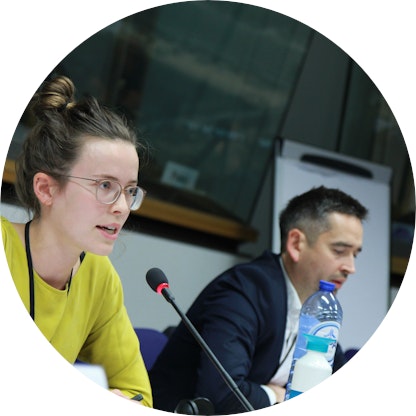Just Transition Fund needs all EU countries to ditch coal
The Just Transition Fund presents an opportunity to get the EU on track towards climate neutrality, but only if it requires all countries to present phase out plans for high-emission technologies like coal burning, argues Rebekka Popp, researcher at the climate change think tank E3G
The Fund aims to mobilise €100 billion
On January, 14, 2020 the European Commission presented its long-awaited proposal for a Just Transition Fund. The fund is a central part of the European Green Deal to support the regions and sectors most affected by the transition to climate neutrality. Meant to mobilise €100 billion, it is an important bargaining chip in the EU’s climate policy negotiations. The Just Transition Fund is a political priority for the new Commission’s President, Ursula von der Leyen, partly in an attempt to secure support for a 2050 climate neutrality target. During a June 2019 meeting of European heads of state and government, a small group of countries led by Poland objected to the goal, citing a lack of financial support from the EU. At the latest meeting of European heads of state and government in December, the EU set itself the goal of becoming climate neutral by 2050 with a fund to support member states in reaching this objective. Poland, however, insists on a caveat, saying it is not ready to commit. In recent weeks, debate has intensified about which countries will be eligible for support from the fund. In response to Poland’s ambiguity over implementing the new climate neutrality goal, French President Emmanuel Macron insisted the Just Transition Fund should only be made available to countries committing to climate neutrality by 2050. Greece has made clear it will exploit Poland’s reluctance to its own advantage. Athens recently announced it will stop burning coal by 2028 and significant additional financing will be needed to buffer the consequences of phasing out coal in the main lignite region of Western Macedonia. To support the transition to a climate neutral EU, the Just Transition Fund must be conditional upon countries’ climate commitments. A socially acceptable transition should not mean delaying climate action. Europe’s trade unions rightly point out there are no jobs on a dead planet. To minimise the disastrous consequences of global heating, Europe needs to rapidly reduce its emissions. Just transition plans should accelerate climate action and the fund should reflect this urgency. The fund should require member states to demonstrate clear plans to phase out high-emission technologies, including coal for power generation, and others such as domestic fossil heaters and internal combustion engines. The sooner this can be done the better. The Powering Past Coal Alliance, a global alliance of national and sub-national governments, businesses and organisations, sets 2030 as an international benchmark for coal phase out in countries belonging to the Organisation for Economic Co-operation and Development. Making just transition plans consistent with National Energy and Climate Plans, which must be submitted to the Commission by all EU countries, will not be enough. Current versions of these plans are unlikely to get the EU close to its 2030 target, let alone the new 2050 climate neutrality target. Indeed, draft versions of these plans reveal major coal countries in Europe have few plans to reduce coal production until 2030. The negotiations that will now follow will be tough. The decision on how much new money the fund will provide rests with richer European countries that are net payers into the EU budget. All have already committed to a coal phase out. If recipient countries like Poland want additional money, they should come up with a good case for increased financing. Committing to ditch coal would be a good start.
PHOTO: Coal Regions in Transition
The views expressed in this opinion are those of the author and do not necessarily reflect the position of FORESIGHT _Climate & Energy_Do you have a thoughtful response to the opinion expressed here? Do you have an opinion regarding an aspect of the global energy transition you would like to share with other FORESIGHT readers? If so, please send a short pitch of 200 words and a sentence explaining why you are the right person to deliver this opinion to opinion@foresightdk.com.
